How Patrizia Reggiani Became La Vedova Nera—The Black Widow—and Had Maurizio Gucci Killed
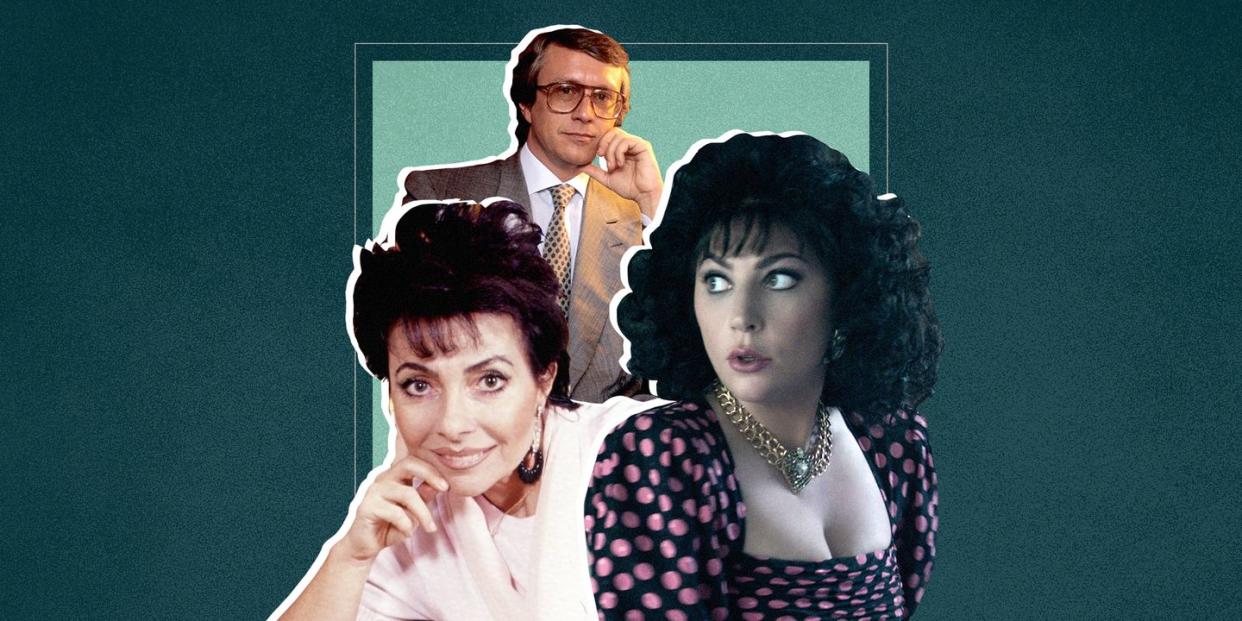
"Hearst Magazines and Yahoo may earn commission or revenue on some items through the links below."
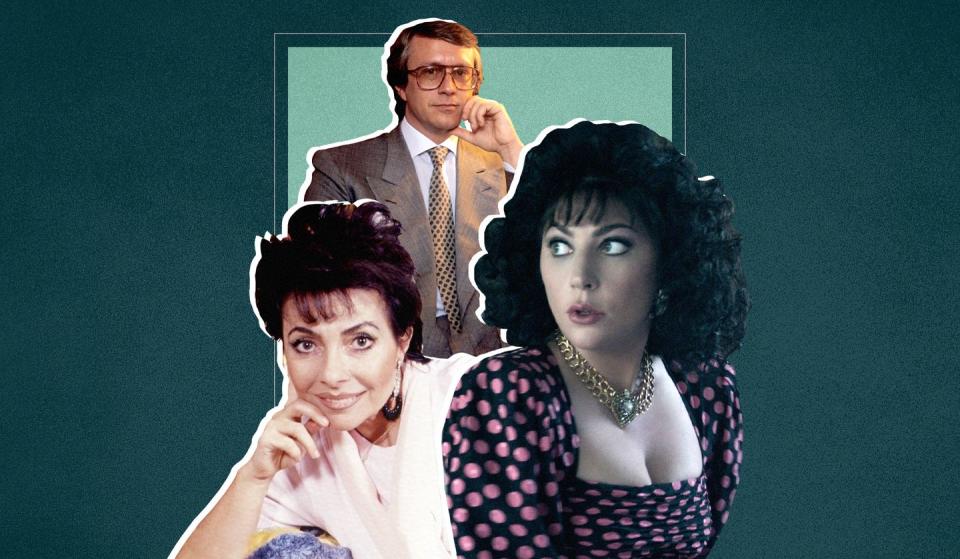
Maurizio Gucci’s father hated his girlfriend from the moment he learned about her. He’d heard she was an uncouth social climber, a party girl who came to class wearing tiny cocktail dresses and fur coats from the night before. The doomed heir was 22 years old and still living at home, but one of the most eligible bachelors in Italy. His father was extremely protective because Maurizio was his only child, and Maurizio’s mother had died when he was five; it was just the two men together for 17 years—until Patrizia Reggiani came along.
Maurizio met Patrizia at a party in Milan in November 1970. They ran in the same society circles, but they were equal opposites: he was tall and awkward, she was the petite life of the party, and with her huge purple eyes she frequently drew comparisons to Elizabeth Taylor. But his father, Rodolfo Gucci, the son of Guccio Gucci, who founded the luxury fashion house, remained suspicious.
“This isn’t about love, this is about her wanting to get her hands on our money. But she won’t!” Rodolfo screamed. “I will disinherit you! You will not get a cent from me, and neither will she!” With that threat, Maurizio packed a suitcase and never came back. The two didn’t speak for years.
When Maurizio left, the Reggianis took him in and gave him work in their trucking business, but Patrizia knew his destiny was to return to the family empire—and run it. By April 1971, Rodolfo’s brother Aldo was hinting to the New York Times that he wanted a young family member to lead, suggesting his own sons were not up to the task. On October 28, 1972, Maurizio and Patrizia were married, despite his father’s demand to the cardinal of Milan to halt the wedding.
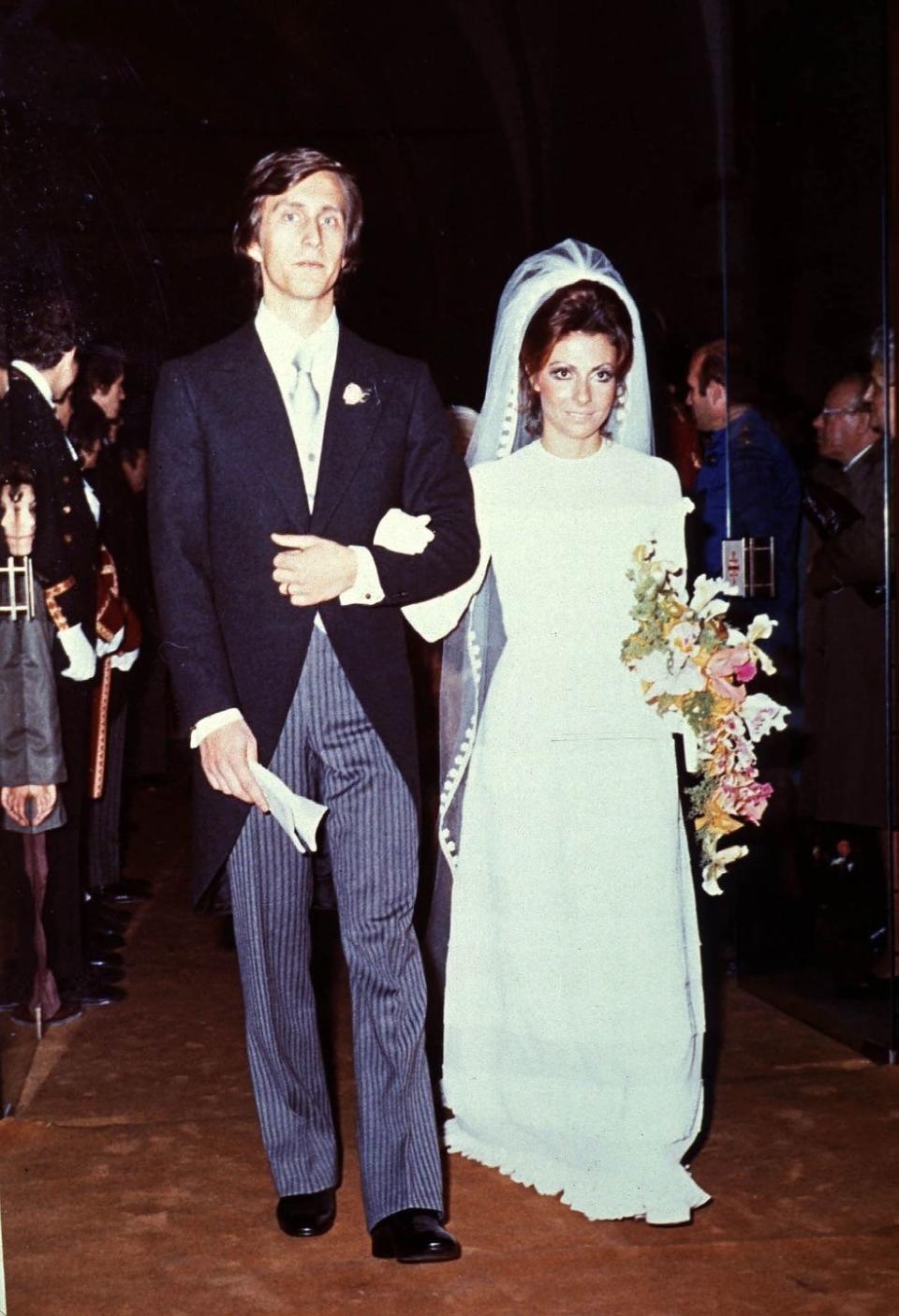
The drama of their beginnings was dwarfed by the couple’s bitter end. On the day Maurizio was murdered two decades later, at Patrizia’s behest, she wrote one word in her journal, in capital letters and in Greek: “PARADISE.”
“What you have to understand about the Guccis is that they are all completely mad, incredibly manipulative, and not very clever,” Jenny Garwood Gucci, ex-wife of Paolo Gucci, told a reporter in 1994 after he was jailed for not paying her alimony or child support. “They have to be in control, but as soon as they get what they want, they crush it.”
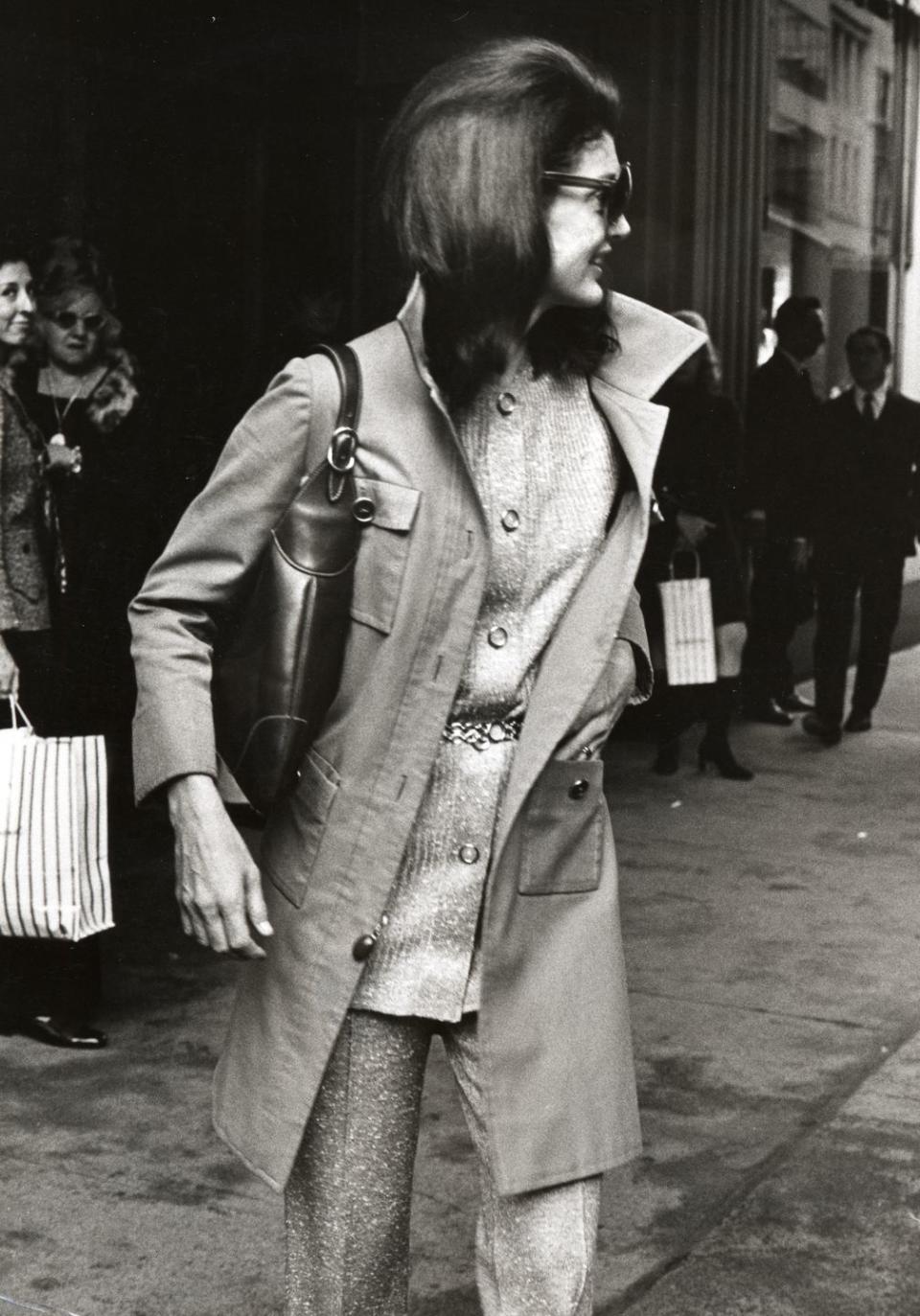
But before their squabbles were splashed across newspapers around the world, before hit men and Lady Gaga movie adaptations, there was Guccio Gucci. In her seminal text House of Gucci, reporter Sara Gay Forden recounts the story of Gucci as it began with Guccio, who opened a leather shop in Florence in 1921, at age 40. The early decades of Gucci were shaped by the era’s politics. The practicalities of World War II and trade embargoes forced the company to innovate: They used veal skins, wicker, and wood in their handbags when they couldn’t get premium leathers, all of which became Gucci signatures. When tourists finally streamed back to Italy at midcentury, a leather handbag was the perfect souvenir splurge. Women spotted in Gucci included Elizabeth Taylor, Sophia Loren, Katharine Hepburn, Bette Davis, Jacqueline Bouvier, and Queen Elizabeth (when she was still just a princess), and just days before Guccio’s death in 1953, three of his sons opened a store at 58th St and Fifth Avenue in New York City. Americans were the company’s best customers.
The brand’s wild expansion of the 1960s and ’70s—to Paris, Tokyo, Beverly Hills, and beyond—allowed for Guccio’s sons and their sons to each have a piece: one overseeing design, one leather production, one the accessories line, one the American business. One of the grandsons who rejoined the business during this explosion was Maurizio. The same year they married, he and Patrizia moved to New York City at the request of his uncle Aldo. Already, anger and envy had begun to simmer among the heirs and in courts about salaries, responsibilities, and the future of the company. A People magazine’s headline in 1982 read, “Move over, Dallas: Behind the Glittering Facade, a Family Feud Rocks the House of Gucci."
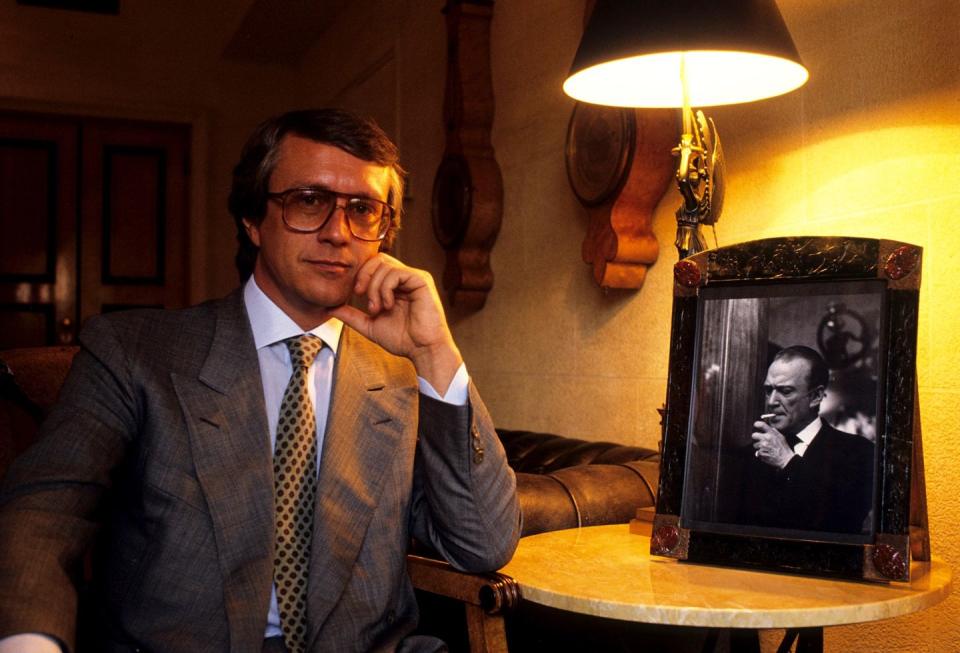
Amid the turmoil, Maurizio and his father Rodolfo made peace, and when Rodolfo died in 1983, he left his only son the greatest gift: a majority stake. But Maurizio hadn’t exactly inherited the kingdom after all, he’d soon learn: his family’s internal and external messiness, and their ferocious expansion, had diluted the brand and its specialness. Gucci was passe, and deep in the red.
So Patrizia had been right about Maurizio’s destiny, but her husband’s ascension to chairman brought the downfall of their marriage. Before he died, Rodolfo warned the daughter-in-law he’d once loathed: “Once he gets money and power, he will change. You will find you are married to another man.”
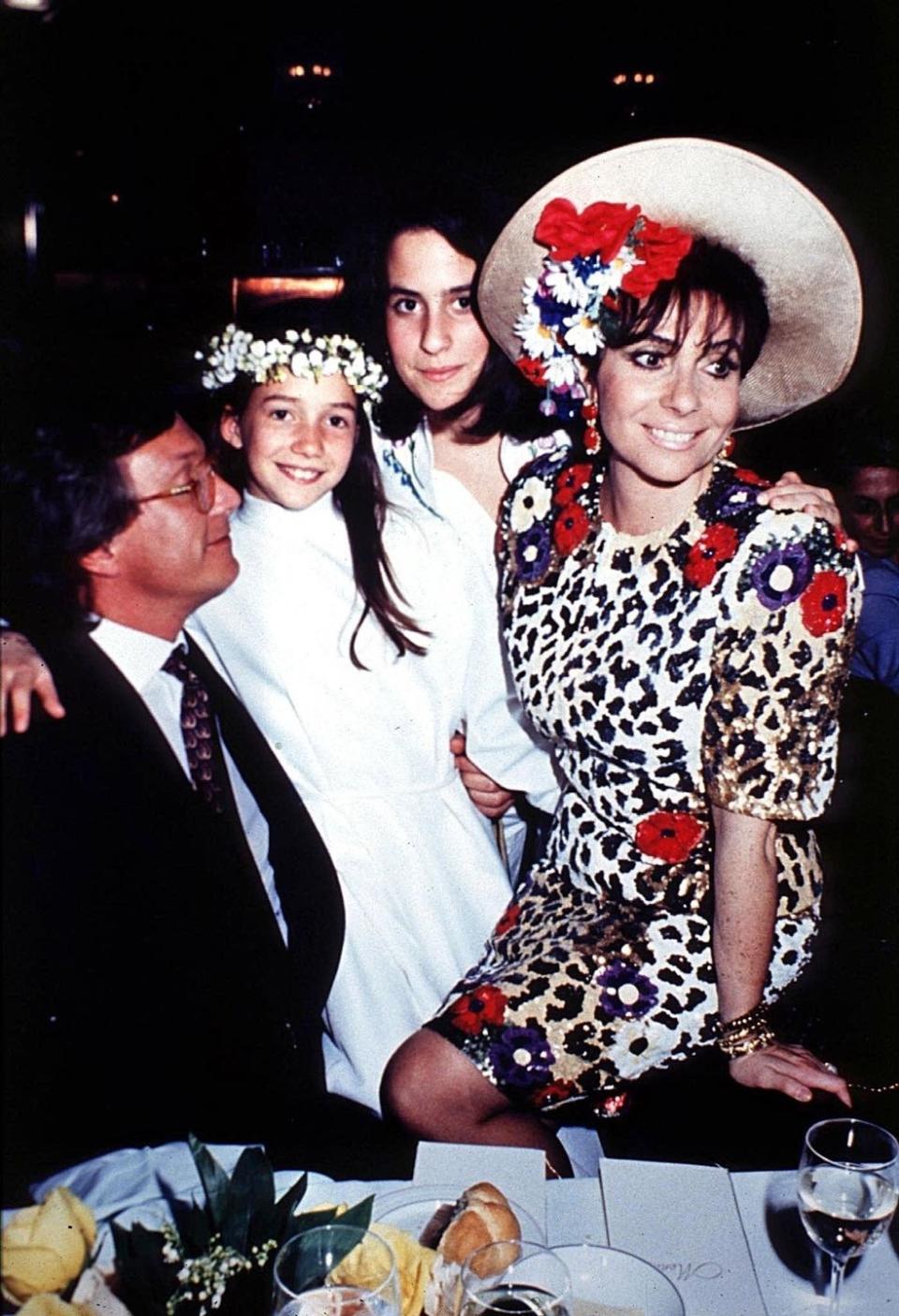
As he battled his family in court and dragged the business from the edge of bankruptcy, Maurizio didn’t have much time for Patrizia or their two daughters Alessandra (born 1976) and Allegra (born 1981). Her attempts to be ultra-supportive were instead smothering. “She set him up against his uncle, his cousins, or anybody else she didn’t feel was treating him properly,” recalled Domenico De Sole, then the CEO of Gucci America, according to Gay Forden's book. “At Gucci events, she would say things like, ‘I didn’t get offered champagne first, that means they don’t respect you!’”
“He stopped coming home for lunch… He gained weight and dressed badly,” Patrizia later remembered. “Maurizio stopped telling me things, his tone grew detached. We spoke less. We grew cold and impassive with each other.”
In May 1985, Maurizio packed a suitcase in their Milan apartment and said he was off to Florence for a few days. A few days later, a mutual friend stopped by to let Patrizia know he wasn’t coming back. He didn’t even divorce her to her face, as Gay Forden recounts. What’s worse, Maurizio asked Patrizia to keep up appearances and attend events with him. He explained that for the first time in his life, he was in charge; he’d been controlled first by his father and then by her, and he yearned for freedom. Patrizia tried to maintain her composure in the hopes of winning him back, but she was suicidally depressed, as she reportedly told her best friend Pina Auriemma—the woman with whom she would eventually collude to kill him.
The chairman was free from his wife, but hardly from his troubles. As the company hemorrhaged money, Maurizio figured out a way to cut his family out of the business entirely: He worked with a Middle Eastern investment bank called Investcorp to slyly buy them out (or force them out) one by one.
With an influx of cash, Maurizio went on a spending and hiring spree. He enticed Dawn Mello, the legendary retail executive who had turned Bergdorf Goodman around, to make the brand feel exclusive again, which the pair accomplished by slashing entire categories of the business—they cut out 70% of Gucci products and closed 82% of their stores. During this era, Mello hired a promising young designer named Tom Ford to reenvision the women’s ready to wear line. Eventually, the pair of Mello and Ford would indeed restore the Gucci name to greatness, but not with Maurizio at the helm; after two years of squandering money both professionally and personally, the chairman’s 50% stake was bought out by Investcorp in 1993. The Gucci family had lost the Gucci business for good.
In 1995, everything changed for Gucci. Ford, who had by then been promoted to creative director, gave a landmark runway show on March 1 that offered Kate Moss and Amber Valetta strutting in silky jewel-toned shirts unbuttoned past their sternums. The collection was a smash, and revenue shot up nearly 90% in a year. The brand would go public in October.
But before that, on March 27, Maurizio Gucci was killed on the red granite steps of his office in Milan. An assassin shot him three times through his camel-colored coat, then gave a final, fatal blow to the temple. The gunman fled, and the case wouldn’t be solved for years. Investigators spent too much time assuming Maurizio’s death was related to the Gucci empire, another business deal got horribly wrong, when, according to Gay Forden, his ex-wife was quite open about how she was plotting his demise. “If it’s the last thing I do, I want to see him dead,” she reportedly told her housekeeper. “Why don’t you ask your boyfriend if he can’t find somebody to help me out?”
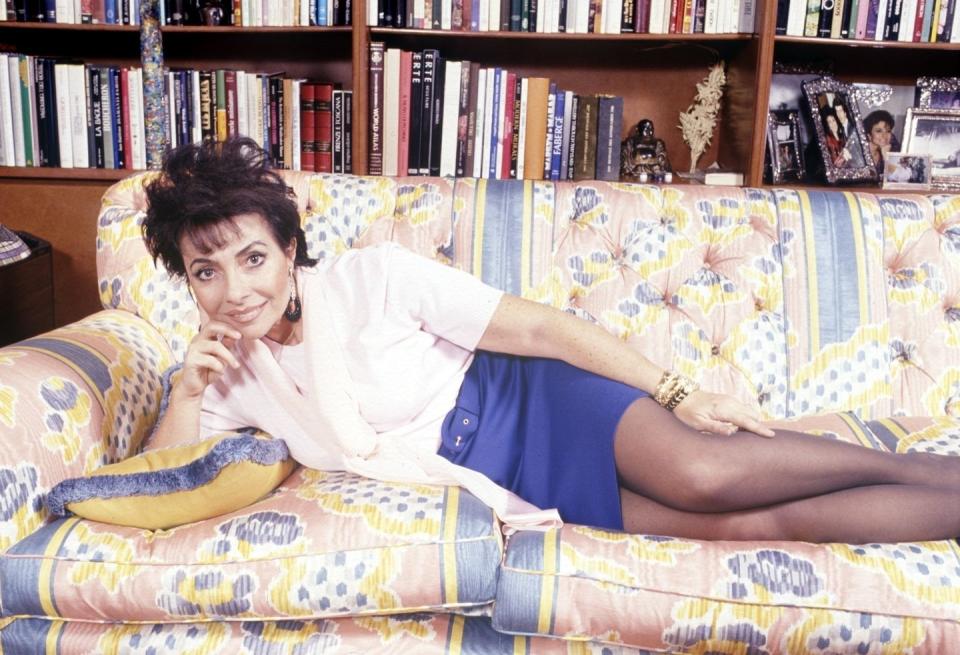
She also reportedly suggested a caretaker of their shared Switzerland estate place tanks of gasoline near the house, and “she’d take care of the rest.” During her daughter Alessandra’s extravagant 18th birthday party in 1994, Patrizia even allegedly asked her divorce lawyer how she could go about having Maurizio killed.
Maurizio knew the depths of his ex’s rage. When he failed to visit after she had surgery to remove a brain tumor, Patrizia recorded a torrent of fury into a cassette tape that she hand-delivered to him: “Maurizio, I am not going to give you a minute of peace… You are a painful appendage that we all want to forget… the inferno for you is yet to come.” In her journal, she wrote, “[V]endetta is not just for the downtrodden but also for the angels. Get your revenge because you are right.”
Within three hours of his murder, Patrizia had already filed legal claim to Maurizio’s apartment and arrived by the afternoon to kick out his girlfriend of many years and her young son. At his funeral, Patrizia wore giant sunglasses and a black veil, telling the scrum of reporters, “On a human level, I am sorry. On a personal level, I can’t say the same thing.”
The investigation went nowhere until January 1997, when, per Gay Forden, an anonymous call tipped off Criminalpol that the sleazy doorman of a Milan hotel had bragged to a hotel guest about how he’d arranged the Gucci murder with Pina Auriemma, Patrizia’s best friend. They’d hired a suburban pizza-shop owner and the mechanic who lived near the shop to act as the getaway driver and assassin, respectively, and Patrizia had paid $375,000 for the act. “Worth every lira,” she bragged in 2016.
Criminalpol launched a sting and placed trackers on the suspects’ cars, but the whole operation only took a few weeks. The criminals were careless, and at the ensuing trial, 43 boxes of evidence were presented, including piles of Patrizia’s noxious journals. When she was arrested, she donned a full-length mink coat and diamond jewelry for jail. “I saw her as a woman with nothing inside, a woman who defined herself by the things around her, a woman who thought money could buy her everything,” said Filippo Ninni, the head of Criminalpol, according to House of Gucci. “I’m not proud of this, but I couldn’t bring myself to talk to her.”
On the witness stand, Patrizia raged still about how she hadn’t received enough in her divorce settlement, which had included multiple apartments, multiple lump sums, and five figures of cash per month. “He gave me the bones so he didn’t have to give me the chicken,” she lamented. The journals showed that she had obsessively documented every single interaction she’d had with her ex for years: every phone call, every time he took his daughters to the movies. “I didn’t have anything better to do,” was her explanation.
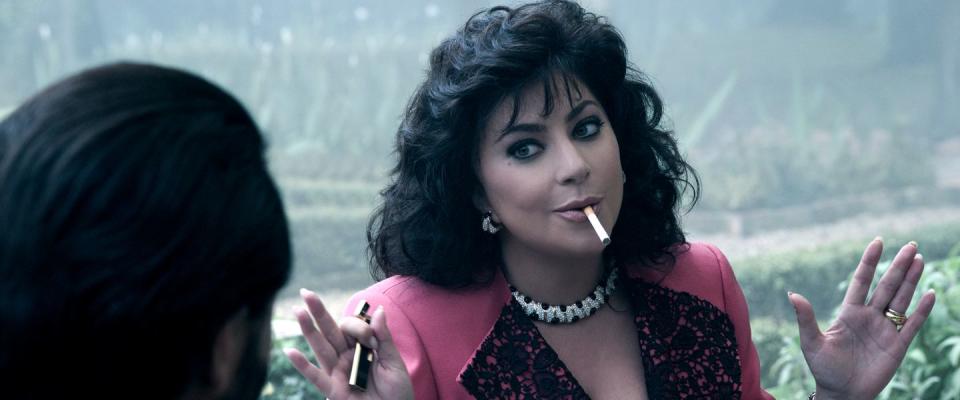
In her text, Gay Forden compared the trial, which captivated the nation, to another murder case playing out the same year. “Like the O.J. Simpson trial, which underscored divisive racial attitudes in American society, the Gucci trial highlighted the chasm separating wealthy from poor in Italy,” she wrote. Patrizia had been rich all her life, living in extravagant homes in Milan, San Moritz, and New York City, but it wasn’t enough, and she hired a handful of blue-collar workers to do her barbaric bidding.
On November 3, 1998, Patrizia and her accomplices were found guilty, and she was sentenced to 29 years in prison. She was offered parole under a work-release program in 2011 but opted to stay imprisoned, saying “I've never worked in my life and I'm certainly not going to start now.” When she was released in 2016, at age 67, she went shopping on Milan’s version of Rodeo Drive dripping in jewelry and with a live parrot perched on her shoulder. She gave interviews complaining that she’d been reduced to wearing Zara and that her daughters, now adults, won’t send her money or allow her to meet her grandchildren. She’s expressed interest in a job back at Gucci. “They need me,” she told the newspaper La Repubblica. “I still feel like a Gucci—in fact, the most Gucci of them all.”
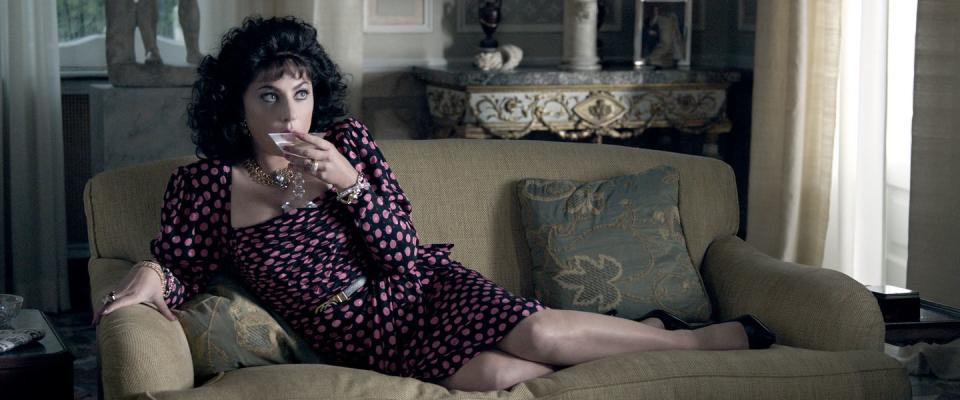
She is, in other words, a more perfect Lady Gaga character than could have been designed. “I am rather annoyed at the fact that Lady Gaga is playing me in the new Ridley Scott film without having had the consideration and sensibility to come and meet me,” she said in a 2021 interview, though she’s admitted to seeing their resemblance. “It is a question of good sense and respect.”
She can’t resist the glamour and spectacle, though: “I'll see the film anyway.” While essentially promoting the film, she discussed her view of the future, and how she hopes to be reincarnated as a ladybug. “A magnificent sight,” she explained. “Small, light, elegant, colorful, reserved.”
You Might Also Like